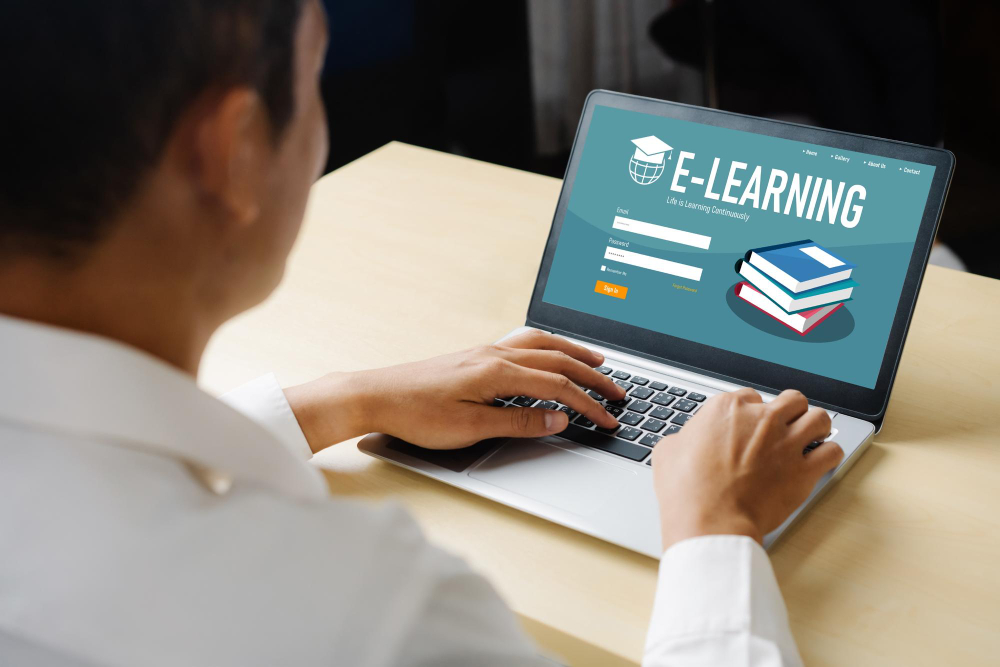
Sunday, 29Jun 2025
Universal Design Learning UDL: Building Inclusive Classrooms for Every Learner
Universal Design Learning UDL is not just…

Tuesday, 10Jan 2023
Employee onboarding is a crucial process for any organization. It sets the tone for a new employee’s experience and can significantly impact their productivity and engagement. In the digital age, e-learning has emerged as a powerful tool for streamlining and enhancing the onboarding process. In this blog, we will explore how to effectively use eLearning Solutions to onboard new employees, ensuring a smooth transition into your company.
One of the key advantages of using eLearning solutions or a learning management system (LMS) is the ability to create customized onboarding paths. With custom eLearning solutions, you can tailor the content and modules to meet the specific needs of different job roles and departments. This flexibility ensures that employees receive the most relevant information and training for their position, making the onboarding experience more engaging and efficient.
E-learning platforms offer various interactive learning modules, such as videos, quizzes, and simulations. These engaging tools can replace or complement traditional onboarding methods like reading manuals or sitting through lengthy presentations. Interactive modules make the onboarding process more enjoyable and effective, as employees can learn at their own pace and actively participate in the learning process.
Using e-learning for onboarding helps maintain consistency and standardization across your organization. Everyone receives the same information and training, reducing the risk of miscommunication or misinformation. This ensures that all employees start with a solid foundation of knowledge about the company’s policies, procedures, and culture.
E-learning allows new employees to learn at their own pace, accommodating various learning styles and speeds. This flexibility is especially important as it caters to the needs of different individuals. Some might prefer to complete their onboarding in a few intensive days, while others may want to spread it out over several weeks. E-learning makes this possible, leading to a more comfortable and less stressful onboarding experience.
With the rise of remote work, e-learning is an ideal solution for onboarding employees, no matter where they are located. It eliminates the need for in-person training sessions, which can be logistically challenging and costly. New hires can access their onboarding materials and complete training from the comfort of their own homes, making the process more convenient and accessible.
E-learning platforms often come with tracking and assessment features. This allows HR and management to monitor the progress of new employees during the onboarding process. You can easily see who has completed which modules and how they performed on assessments. This data can help identify areas where additional support or training may be required.
E-learning platforms also enable you to collect feedback from new employees about their onboarding experience. This feedback can be invaluable in improving the process for future hires. Listen to their suggestions and concerns and make necessary adjustments to enhance the onboarding process continually.
E-learning has revolutionized the employee onboarding process, making it more efficient, engaging, and adaptable. By utilizing customizable learning paths, interactive modules, and self-paced learning, organizations can provide a seamless transition for new employees. The consistency and standardization offered by e-learning ensure that everyone is on the same page, and remote accessibility ensures that onboarding can take place anywhere. With tracking and assessment features, engaging content, and the ability to gather feedback for improvements, e-learning is a valuable tool for any organization looking to create a successful onboarding process.
Incorporating e-learning into your onboarding process will not only save time and resources but also contribute to a more positive and productive work environment for new employees. It’s an investment that pays dividends in terms of employee satisfaction and long-term success.

Sunday, 29Jun 2025
Universal Design Learning UDL is not just an educational trend—it’s a philosophy, a movement, and a practical solution to one of education’s biggest challenges: inclusion. In today’s diverse classrooms, every…
Read More line_end_arrow_notch
Monday, 23Jun 2025
In a world where attention spans are shorter than a goldfish’s memory and workplace demands are always on overdrive, blended learning emerges as the hero L&D teams didn’t know they…
Read More line_end_arrow_notch
Tuesday, 17Jun 2025
Ever feel like knowledge slips away as fast as you learn it? You’re not alone! Learning retention is the key to making training effective, ensuring that learners actually remember and…
Read More line_end_arrow_notch